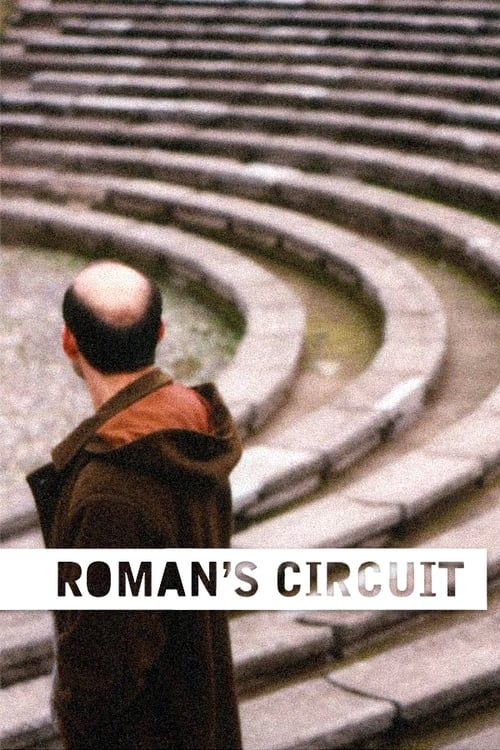
Ask Your Own Question
What is the plot?
What is the ending?
In the ending of the movie "Shui," the protagonist, a young woman named Mei, confronts her past and the emotional turmoil surrounding her family. After a series of intense revelations and confrontations, she finds a sense of closure and acceptance. The film concludes with Mei standing by a river, symbolizing her journey of healing and the flow of life, as she embraces her future.
As the final act unfolds, the scene transitions to Mei standing at the edge of a serene river, the water glistening under the soft light of the setting sun. The air is thick with the scent of damp earth and the sounds of nature, creating a tranquil yet poignant atmosphere. Mei's expression is a mixture of relief and sorrow, reflecting the weight of her journey.
In the preceding scenes, Mei has faced her estranged father, who has been a source of pain and abandonment throughout her life. Their confrontation is charged with emotion; Mei's voice trembles as she expresses years of hurt and longing for connection. Her father, visibly aged and remorseful, struggles to articulate his regrets, revealing the complexities of his own past decisions. This moment is pivotal, as it lays bare the raw emotions that have shaped both their lives.
Following this confrontation, Mei seeks solace in the memories of her late mother, who had always encouraged her to find strength in vulnerability. In a flashback, we see Mei as a child, laughing and playing by the same river, her mother's laughter echoing in the background. This juxtaposition of past joy and present sorrow deepens Mei's emotional state, as she grapples with the loss and the love that still lingers.
As the sun begins to dip below the horizon, casting a golden hue over the water, Mei takes a deep breath, her heart racing with a mix of fear and hope. She steps closer to the riverbank, the water lapping gently at her feet. In this moment of reflection, she acknowledges her pain but also recognizes her strength. The river symbolizes the flow of life, and Mei understands that she must let go of the past to embrace her future.
In the final moments, Mei closes her eyes, allowing the cool breeze to wash over her. She whispers a quiet farewell to her mother and father, releasing the burdens she has carried for so long. The camera captures her serene expression as she opens her eyes, a newfound determination shining through. The film ends with a wide shot of Mei standing alone by the river, the water flowing steadily, signifying her acceptance and readiness to move forward.
In summary, Mei's journey culminates in a powerful moment of self-discovery and acceptance. Her father, though regretful, remains a figure of her past, while her mother's memory serves as a guiding light. The ending encapsulates the themes of healing, forgiveness, and the importance of embracing one's emotions to find peace.
Is there a post-credit scene?
In the movie "Shui," produced in 2012, there is indeed a post-credit scene that adds an intriguing layer to the narrative.
As the credits roll, the screen fades to black before transitioning to a serene, misty landscape by a tranquil lake, reminiscent of the film's central themes of water and reflection. The camera slowly pans across the surface of the water, capturing the gentle ripples that distort the reflection of the surrounding trees and sky.
Suddenly, a figure emerges from the fog--it's the protagonist, Mei, who had faced numerous challenges throughout the film. She stands at the water's edge, her expression contemplative and serene. The audience can see the weight of her journey etched on her face, but there is also a glimmer of hope in her eyes.
As she kneels by the water, she reaches out, her fingers grazing the surface, sending small ripples outward. In this moment, the scene conveys her acceptance of the past and her readiness to embrace the future. The camera zooms in on her hand, and as the ripples expand, they create a visual metaphor for the impact of her choices and the interconnectedness of her life with those around her.
The scene concludes with a soft, ethereal sound, reminiscent of water flowing, as the screen fades to black once more, leaving the audience with a sense of closure and the promise of new beginnings. This post-credit moment encapsulates the film's exploration of personal growth and the healing power of nature, inviting viewers to reflect on their own journeys.
What motivates the main character, Mei, to embark on her journey in Shui?
Mei is driven by a deep sense of loss and a desire to reconnect with her family's past. After discovering an old diary belonging to her grandmother, she feels compelled to uncover the truth about her family's history and the mysterious events that led to their separation.
How does the relationship between Mei and her estranged father evolve throughout the film?
Initially, Mei's relationship with her father is strained due to years of silence and unresolved issues. As they journey together, they confront their shared grief and misunderstandings, leading to moments of vulnerability that gradually rebuild their bond.
What role does the setting play in the development of the story in Shui?
The setting, which shifts between the bustling city and serene rural landscapes, reflects Mei's internal conflict. The city represents her chaotic life and the weight of her family's secrets, while the rural areas symbolize her search for peace and understanding of her heritage.
What is the significance of the water motif throughout the film?
Water serves as a powerful symbol in Shui, representing both cleansing and the flow of emotions. It reflects Mei's journey of healing, as she learns to let go of her past and embrace her identity, culminating in pivotal scenes where water becomes a catalyst for revelation.
How do the supporting characters influence Mei's journey in Shui?
Supporting characters, such as her childhood friend and a wise elder, provide guidance and perspective that challenge Mei's views. They help her navigate her emotional turmoil, offering insights that lead to her personal growth and understanding of her family's legacy.
Is this family friendly?
"Shui," produced in 2012, is a film that delves into themes of family, loss, and the struggle for survival. While it has a compelling narrative, there are several aspects that may be considered objectionable or upsetting for children or sensitive viewers:
-
Emotional Turmoil: The film explores deep emotional themes, including grief and loss, which may be intense for younger audiences. Characters experience significant personal struggles that can evoke strong feelings.
-
Violence and Conflict: There are scenes depicting conflict that may involve physical altercations or threatening situations. These moments can be distressing, especially for sensitive viewers.
-
Dark Themes: The film addresses issues such as abandonment and desperation, which may be unsettling for children. The portrayal of characters in dire situations can be emotionally heavy.
-
Tragic Events: Certain plot points involve tragic occurrences that could be upsetting, as they deal with the fragility of life and the impact of loss on families.
-
Intense Atmosphere: The overall tone of the film can be quite somber, with moments that create a sense of dread or hopelessness, which may not be suitable for all viewers.
These elements contribute to a narrative that, while rich and engaging, may not be appropriate for younger audiences or those who are particularly sensitive to emotional or intense content.





















